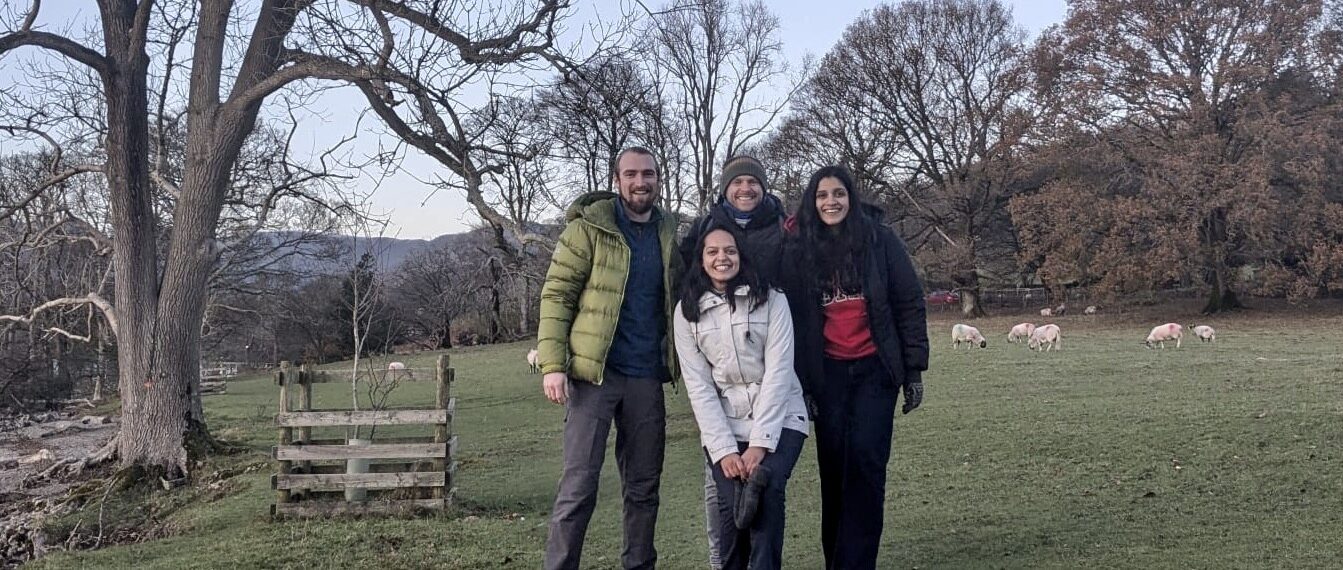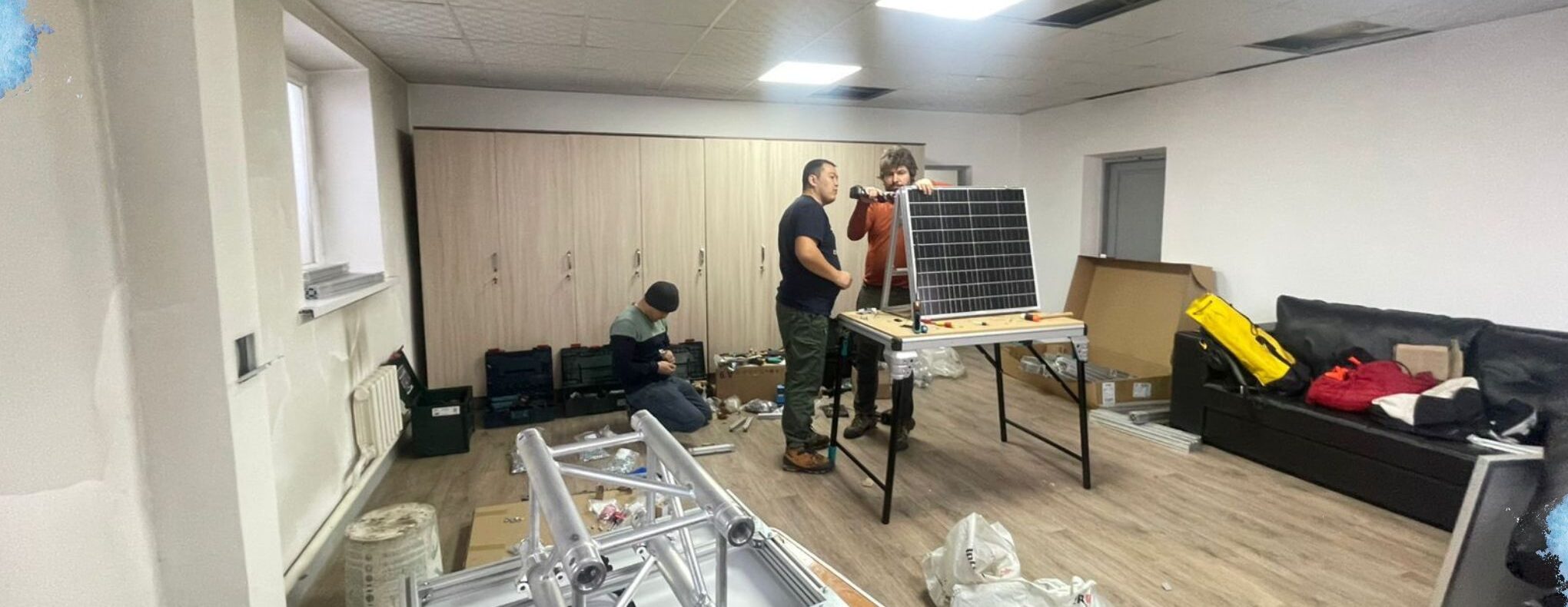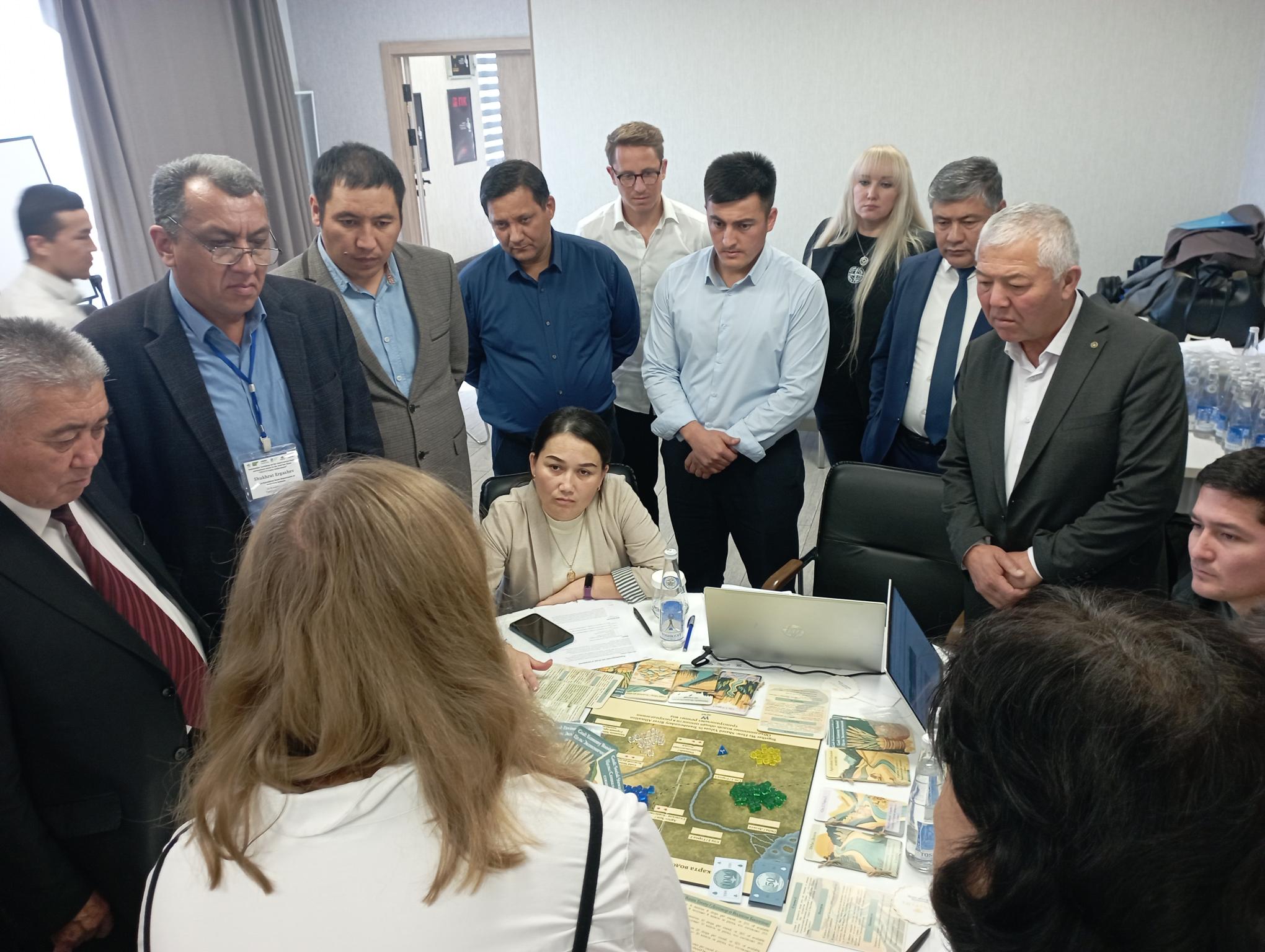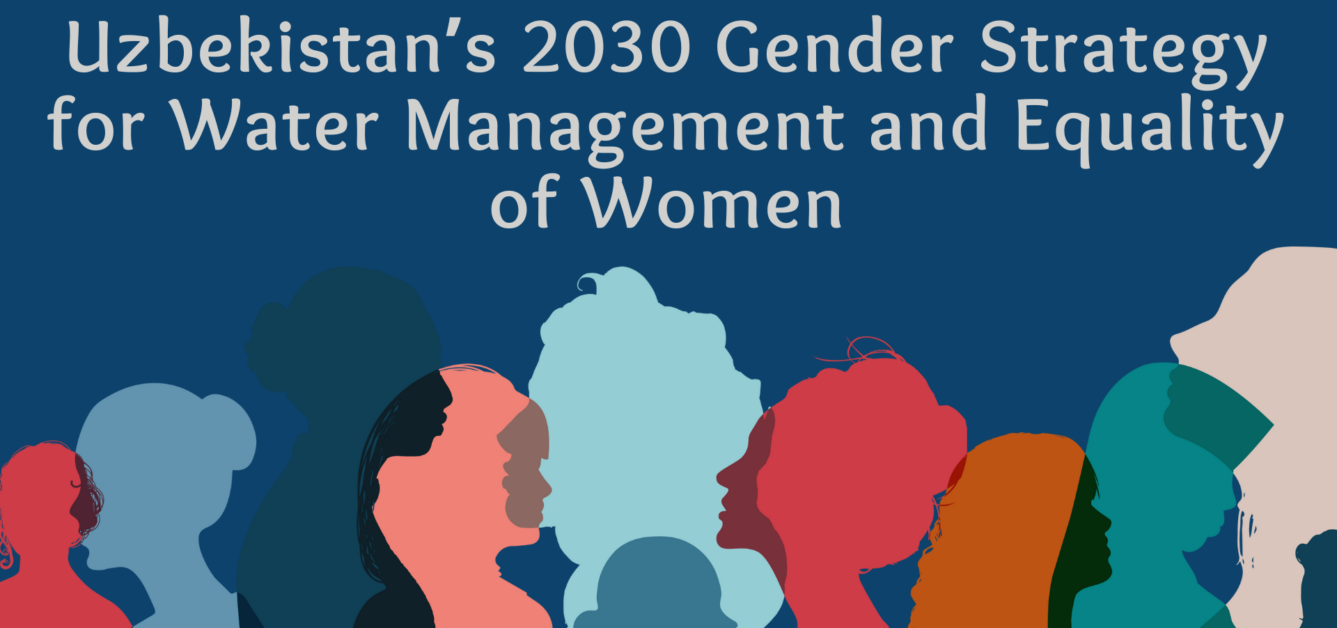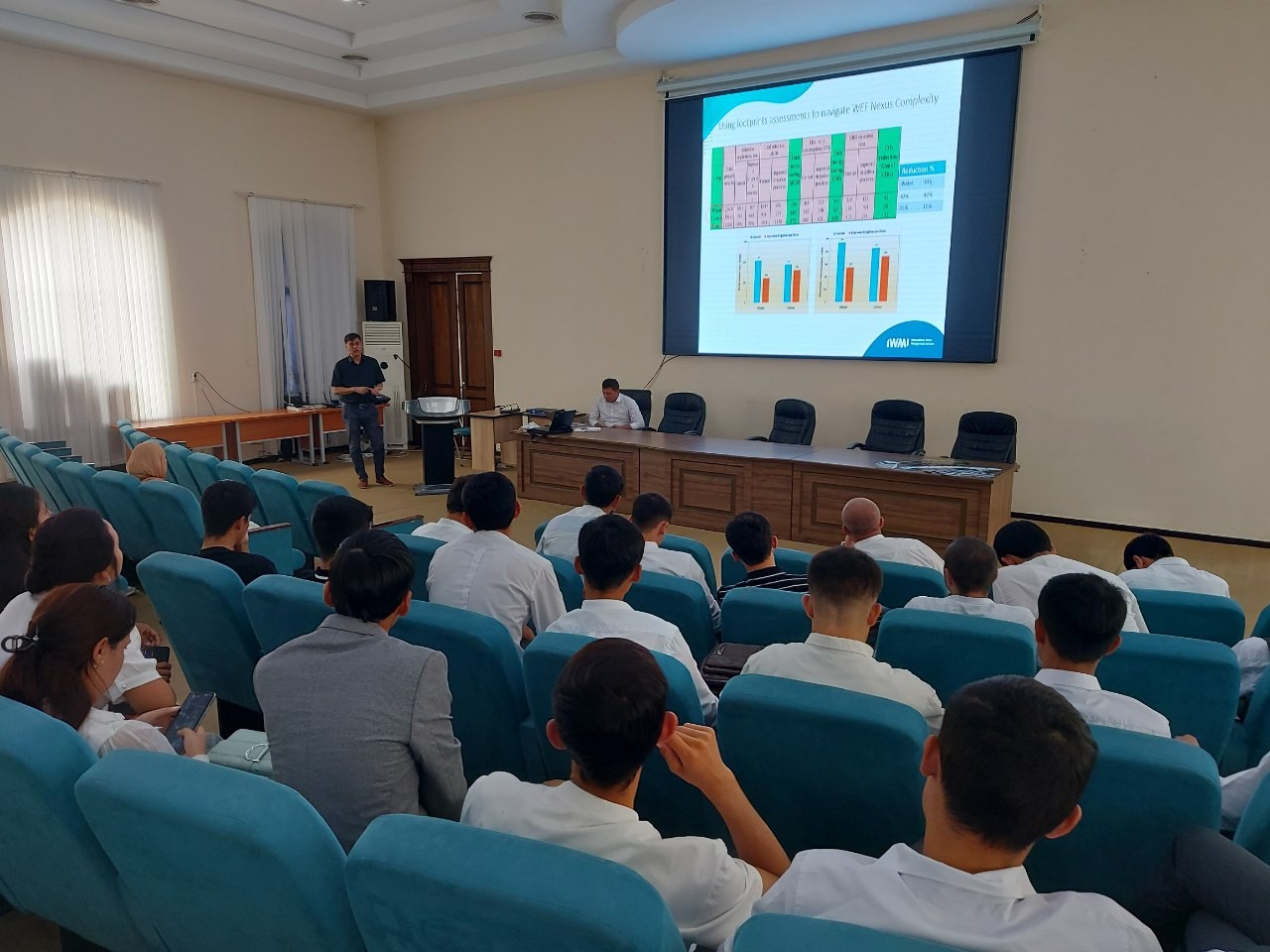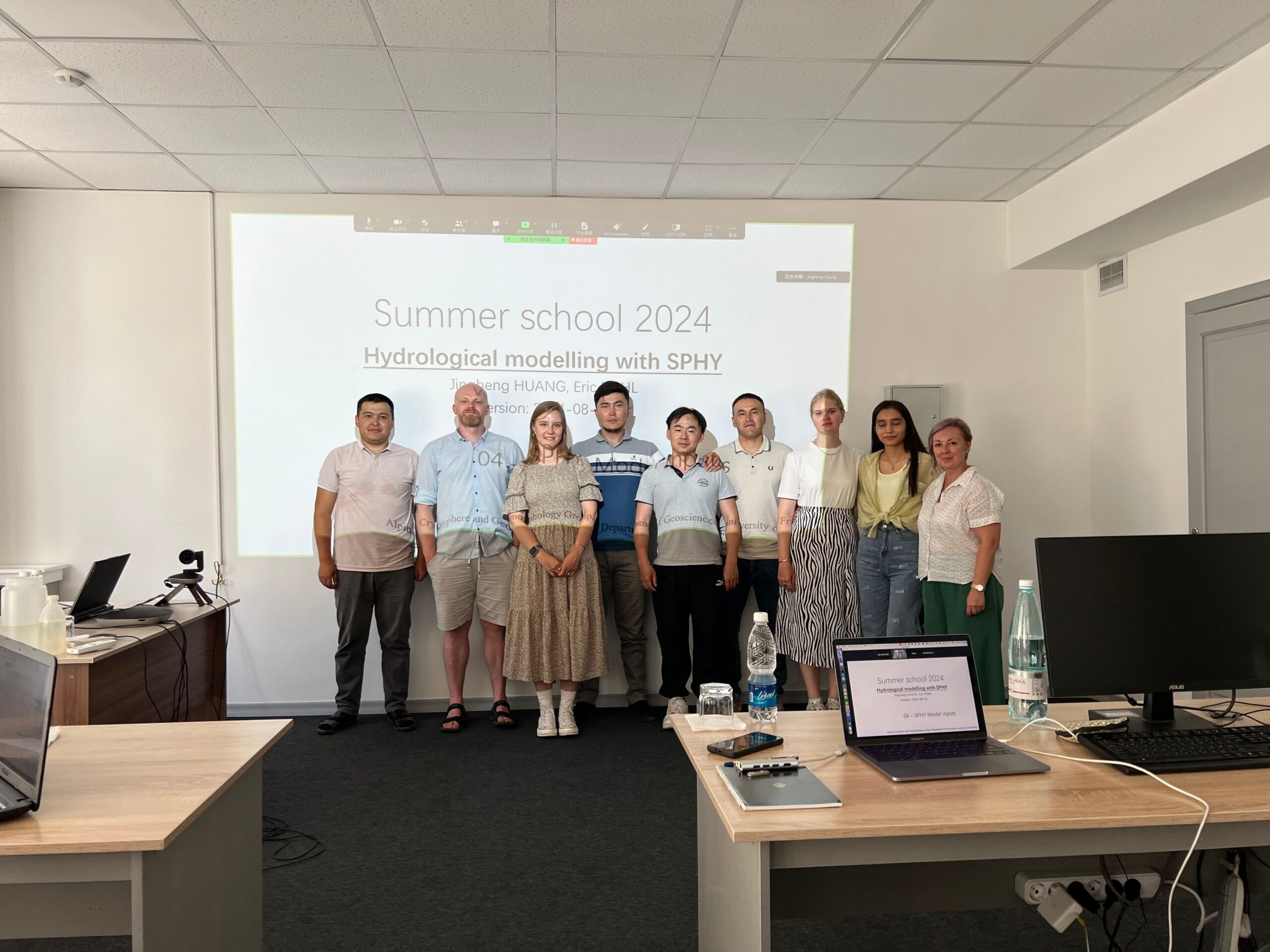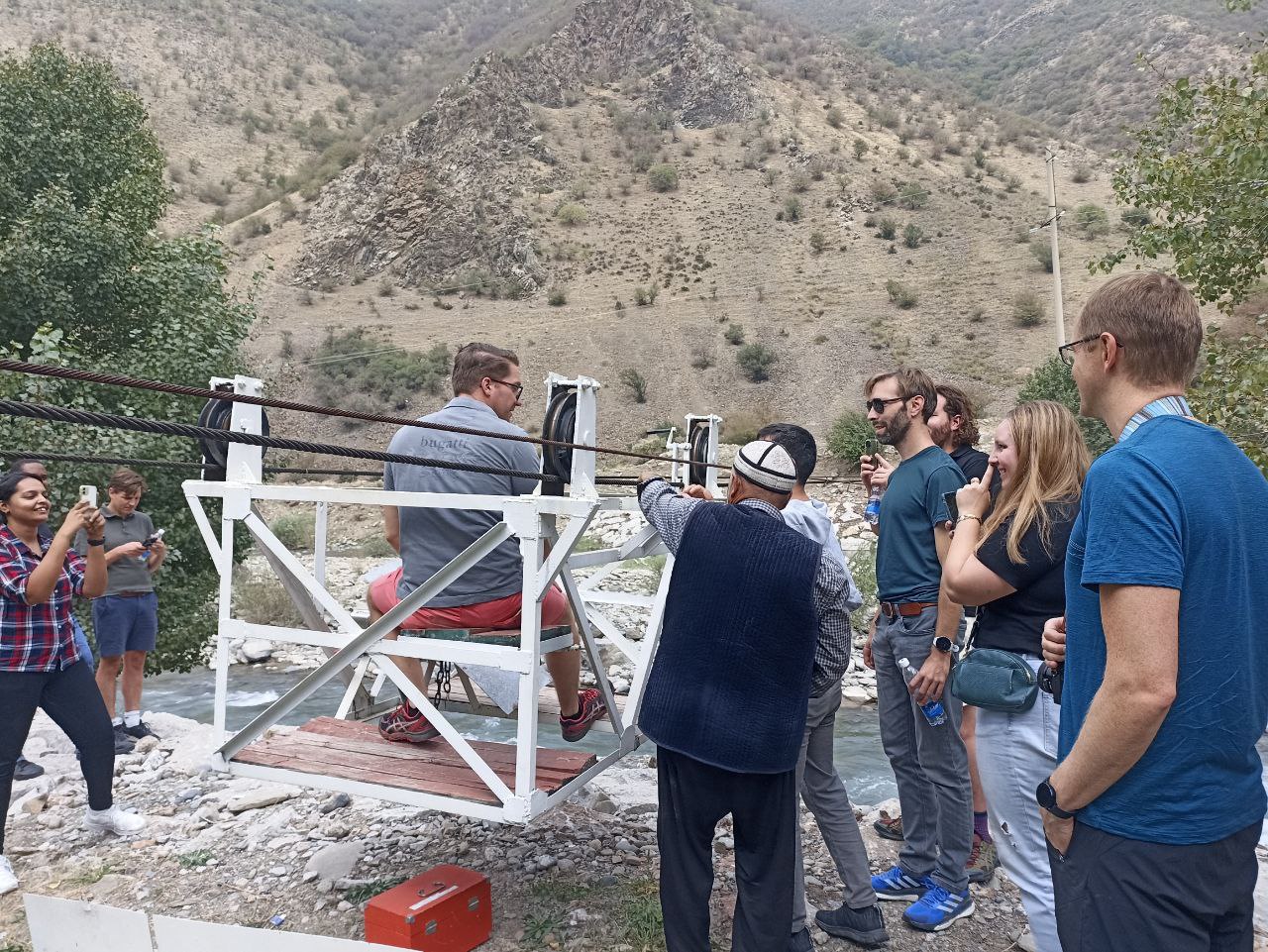From revealing stakeholder dialogues to the complexities of data protection and the resonance of water valuation. Together, we navigate a promising path, uniting diverse perspectives and proactive engagements, orchestrating a harmonious future in the realm of water resource management.
Stakeholder Workshop: Water Resources in Central Asia under a Changing Climate
The Stakeholder Workshop on Water Resources in Central Asia under a Changing Climate, held on September 11th at Park Hotel Bishkek and organized by the Central Asian Institute for Applied Geosciences (CAIAG), served as a dynamic forum for comprehensive discussions on water resources management. Dr. Bolot Moldobekov, co-director of CAIAG, and Prof. Markus Disse, Chair of Hydrology and River Basin Management at TUM, warmly welcomed participants. The inaugural session commenced with the introduction of the WE-ACT project by Dr. Jingshui Huang, TUM’s project coordinator, emphasizing its mission of “Water-efficient allocation in a Central Asian transboundary river basin.” This laid the foundation for enlightening presentations, including insights on the changing climate’s impact on water resources in Kyrgyzstan, rational water use in Central Asia, and the influence of buried ice on river runoff in the Northern Tien-Shan. The subsequent session delved deeper into crucial project aspects, exploring topics such as the data supply chain and Decision Support System (WP 4-Development and deployment of decentralized data storage enabling integrated modelling & 5-Prototyping, piloting and demonstrating a DSS for water allocation) and stakeholder engagement with cross-border policies for sustainable benefit sharing.
One of the reasons this collaboration is going so well is because we have a clear goal on what we want to do.
Jingshui Hunag, Project Coordinator, TUM Tweet
Stakeholder Consultation Workshop: Navigating Water Allocation in a Changing Climate
13th September – Jannet Resort Hotel, Osh. The Stakeholder Consultation Workshop on Navigating Water Allocation in a Changing Climate, held at Jannet Resort Hotel in Osh on September 13th organized by IWMI-CA, facilitated an intersection of expertise in the efficient allocation of water resources in the Syrdarya River Basin. Guided by the adept moderation of Mr. Oyture Anarbekov, Country Manager/Researcher at IWMI-CA, the workshop brought together influential figures, including representatives from Osh City Mayor Administration, the Delegation of the EU to Kyrgyzstan, Mr. Ruslan Abibullaev (Head of Osh Basin Water Authority), and experts from SIC-ICWC, BWO Syrdarya, CAIAG, TUM, and IWMI. Dr. Jingshui Huang, the Project Coordinator of WE-ACT, unveiled the comprehensive project objectives to address water challenges in Central Asia, setting the stage for detailed presentations by Work Package leaders. The interactive sessions, moderated by Ms. Birte Wolff and Dr. Ivan Rocabado, delved into stakeholder engagement, crafting water information systems, and cross-sectoral cooperation, fostering collaborative discussions and sharing of insights among participants.
Two Day General Assembly
The 2-Day General Assembly 2023, which took place on the 14th–15th of September at Grand Hotel Chavo, Osh, proved to be a pivotal juncture for the WE-ACT project. This assembly, set against the backdrop of the Stakeholder Meetings, featured a comprehensive Flash Light session that offered a reflective recap on lessons learned, key take-home messages, and implications that guided the focus for the upcoming months, potentially steering new tasks or areas of emphasis within Work Packages. The assembly included detailed presentations from all Work Package leaders, presenting accomplishments to date and outlining future steps. A critical review of data management practices, encompassing already existing and incorporated data, was undertaken to strategize the path forward. Additionally, insights gleaned from stakeholder meetings on Decision Support System (DSS) functionalities and end-user perspectives. The assembly concluded with discussions on the post-WE-ACT period, examining trends and strategies beyond the project’s duration to ensure long-term impact and collaboration.
Additionally, our partners conducted a detailed Advisory Board meeting on September 12th, seeking insights and advice from the members. This meeting adopted a hybrid format, incorporating both in-person and virtual participation.
Insights from our partners during the meetings have been particularly revealing. There is optimism regarding the complexity of the Decision Support System (DSS). However, the sensitive nature of data sharing underscores the need for a reflective approach, ensuring stringent protection measures if information is shared. The value of water emerges as a significant concern, as the DSS might be employed to justify certain behaviors. Despite these challenges, the information gathered has already propelled us in a positive direction. Group discussions highlighted differences in volume units between countries, emphasizing the importance of finding a common ground. Stakeholders expressed a keen interest in future projections, prompting the need to establish contact and gather useful data from the ongoing project. A positive note is the proactive planning of discussions by the modeling group, with CAIAG identified as a crucial piece in the puzzle, necessitating careful consideration of their suggestions and feedback.



